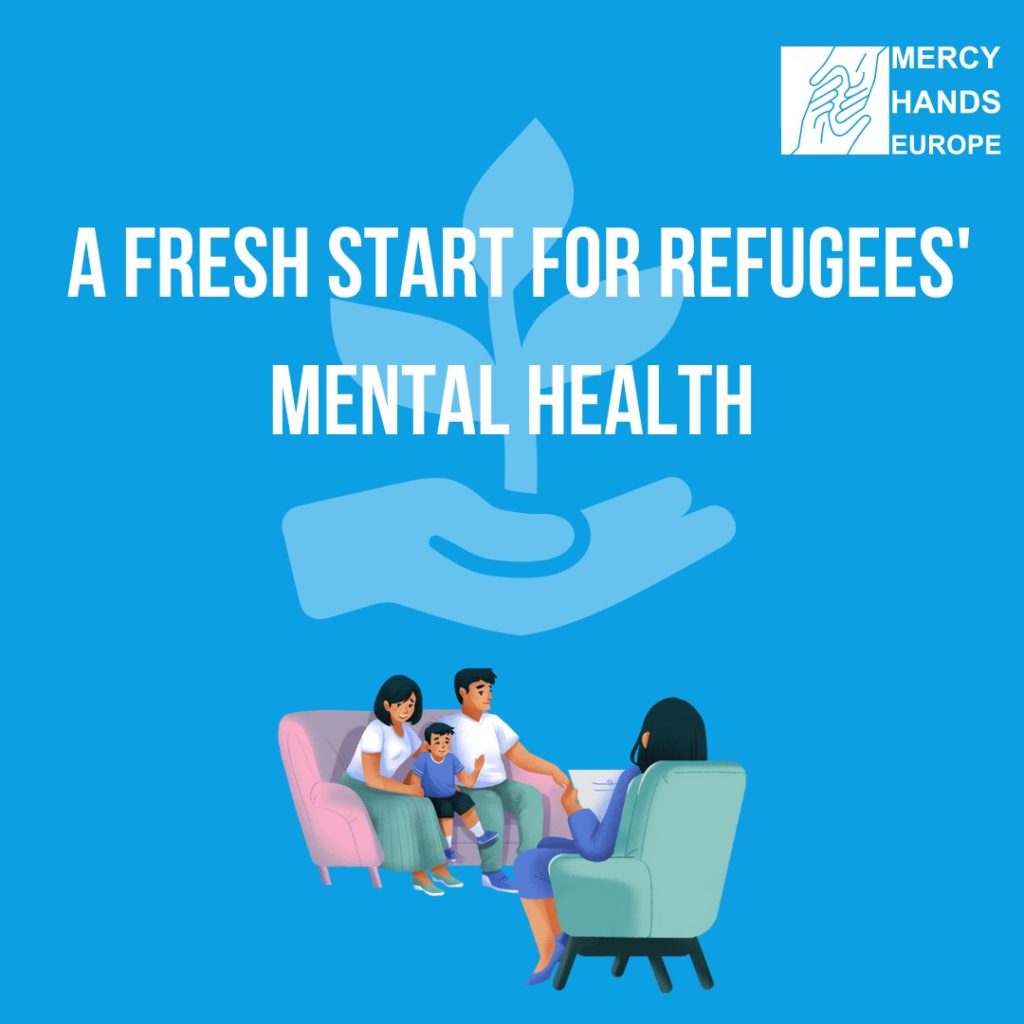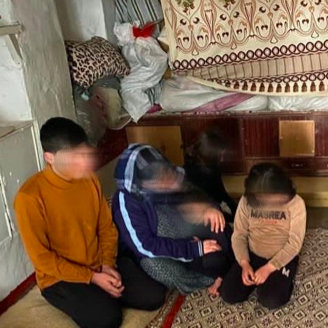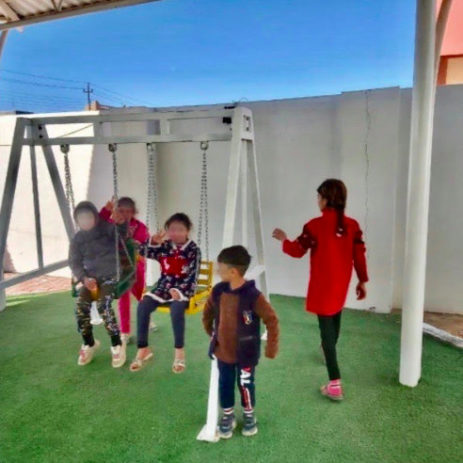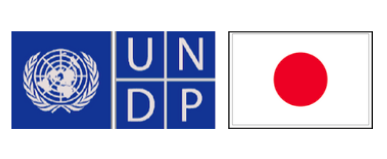You can only edit the main page excerpt and the featured image here.
Psychosocial and legal support for Iraqi and North-East Syrian families
Iraq and Syria are facing significant challenges in their recovery from the war which resulted in a humanitarian crisis, the displacement of millions of people, and the destruction of infrastructure and basic services. Lack of livelihoods and access to basic services pushes vulnerable groups to normalise negative behaviours like domestic violence, gender based violence or armed group affiliation. Mercy Hand Europe and the International Social Service Switzerland work together to provide Iraqi and North-East Syrian families with social, legal and psychological support, and to strengthen child welfare and child protection systems in Iraq. We provide social, psychological and legal assistance to women and children in cases of violence, abuse, divorce, and mental instability, through our team of social workers, lawyers, psychologists and translators, as well as address cross-border migration cases.
Referral centre for child counselling and female empowerment in Talafar
Nearly 4 years have passed since Talafar District, Iraq, was liberated from extremist group military occupation, but significant challenges still prevent the recovery of the area. Lack of livelihoods and access to basic services pushes vulnerable groups, such as internally displaced persons and returnees, to normalise negative behaviours like domestic violence, gender based violence or armed group affiliation. Children and women are especially vulnerable in those situations, and they are the first to become at risk of being victims of diverse types of violence. The project, supported by Anne Frank Fonds, established a referral centre to provide psychological support to children and women survivors of gender based violence and other abuses. In parallel, we are conducting a community awareness campaign to promote children and women’s rights, and promote the role of the Iraqi Community Police in preventing violence against women and children.
Providing Mental Health and Psychosocial Support for Community-Based Reintegration
During the conflict with a powerful extremist group, more than 6 million Iraqis were displaced from their home areas, and an estimated 1.3 million people remain displaced today. Among them, many families formerly affiliated with said group are still marginalised and stigmatised, leading to greater destruction and vulnerability of these groups to violent extremism and the targeting of radical ideologies. The Japanese Government and United Nations Development Program supported project aims to target communities in Al-Anbar, Salah al-Din, and Nineveh governorates to better reintegrate extremist group affiliated families and mitigate any future tensions. the objective is to strengthen community psychosocial reintegration support for children and adults formerly associated with terrosist groups, victims of gender based violence, and selected community members by providing free services by psychologists, psychiatrists, and social workers, as well as training in basic psychosocial skills in post-conflict settings.
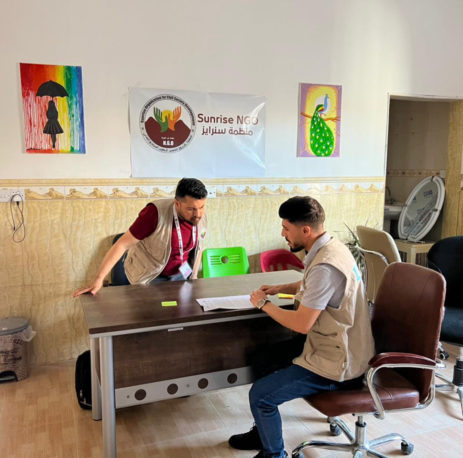
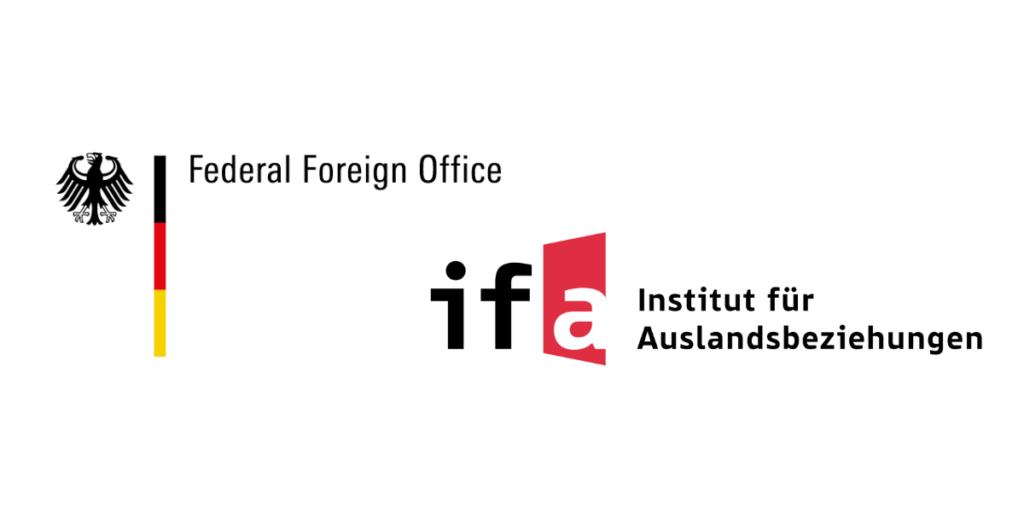
Strengthening Civil Society and the Rule of Law in Iraq as a Peacebuilding Tool
In Iraq, the response to human rights violations often remains lacklustre due to the lack of resources and capacity of the governmental offices. However, the civil society, especially CSOs (Civil Society Organisation), can move towards fostering respect and compliance to human rights with the right capacity, understanding, and tools. Supported by the German Federal Foreign Office, funded by IFA (Institut für Auslandsbeziehungen), this project provides in its first phase training for CSOs in Erbil and for ICPs (Iraqi Community Police) and prison staff in Baghdad, aimed at human rights promotion and application, as well as capacity-building. Furthermore, the project also hosts a roundtable discussion between key ICP and prison staff members in Baghdad which allows to host a forum where obstacles to justice and rule of law are identified and addressed during training. In the second phase of the project we have provided essential training to lawyers, CSOs, academics and journalists regarding the reporting and documenting of human rights violations to international bodies. During this we had the opportunity of meeting with the UNCED (United Nations Committee for Enforced Disappearences) during their visit in Iraq and discussing the current situation in the country.
Providing compensations for PTSD middle eastern refugees in Europe
In coordination with a law firm, we are supporting the mental and physical health of refugees based in Europe and coming from the middle east, to provide economic compensation to people that suffered from Post-Traumatic Stress Disorder (PTSD) with physical and mental injuries. Through interviews carried out by our hybrid team of legal and medical staff, we are supporting them to receive adequate compensation, in the hope that this will help them to start a new life and partially contribute to increased justice.
Are you a refugee currently based in Germany or elsewhere in Europe that worked for a US-based company in the Middle East? Are you now experiencing physical or mental PTSD? If your answers are YES, contact us at or at +41 76 703 01 13 to apply for receiving the compensation.
